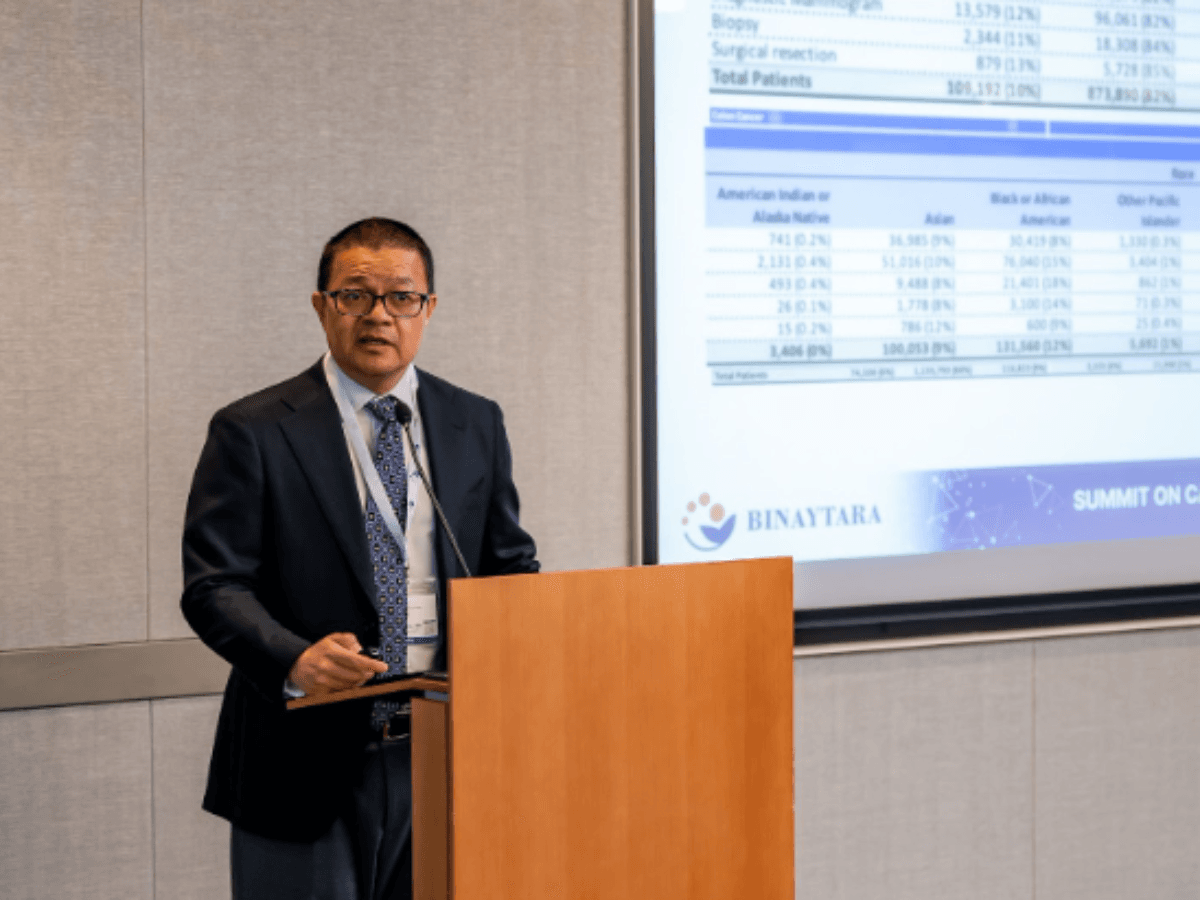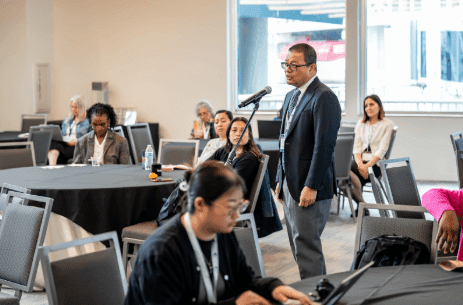VMFH Executive Medical Director Joseph Rosales Builds Pathways to Equitable Cancer Care

Author
Binaytara Team
"Even with available cutting-edge treatments, it is frustrating when patients cannot access them simply because they lack the financial resources," Dr. Joseph Rosales remarked. In the heart of Seattle, Dr. Rosales, the Virginia Mason Franciscan Health (VMFH) Executive Medical Director for the Center for Cancer Care, is rewriting the narrative of cancer care, one partnership at a time.
According to the American Cancer Society’s 2025 cancer statistics, an estimated 46,500 new cancer cases will be diagnosed in Washington state, with approximately 13,870 deaths. Historically, these numbers have disproportionately impacted specific demographic groups, including American Indian/Alaska Native and Black non-Hispanic populations. As these outcomes do not affect all communities equally, Dr. Rosales saw an opportunity to level the playing field through education, research, and advocacy.
Dr. Joseph Rosales is a hematologist-oncologist who specializes in lung and esophageal cancers. He also serves as the Executive Medical Director for the Center for Cancer Care, overseeing strategy and service line development for all cancer-related services across Washington and Oregon. Beyond his clinical responsibilities, Dr. Rosales is deeply committed to closing gaps in cancer care, particularly in underserved regions.
A key part of that commitment includes his longstanding involvement with Binaytara, an oncology nonprofit organization based in Bellevue, Washington. For over a decade, Dr. Rosales has chaired numerous of the organization’s continuing medical education (CME) conferences aimed at equipping community-based providers with the latest advances in cancer treatment and management. Most recently, he co-chaired the Alaska Hematology Oncology Conference, which brought together leading experts to share actionable insights into molecular variations commonly seen in cancer.
That same commitment to knowledge-sharing and collaboration was evident at the 2025 Summit on Cancer Health Disparities in Seattle, where Dr. Rosales drew on his experience partnering with the International Community Health Services (ICHS) to chair a session on building bridges between healthcare systems. He co-led the session with Carrie Wallin, VMFH Regional Director of the Oncology Service Line. Other panelists included Camille Biggins from VMFH, Cindee Dewitt from the American Cancer Society (ACS), Brendan Lo from ICHS, and Gabrielle Flowers from Fred Hutchinson Cancer Center.
Dr. Rosales spotlighted how VMFH and ICHS, located just two miles apart, are collaborating to improve access to cancer screening and follow-up care for high-risk populations. This partnership, supported by an ACS grant, is focused on creating sustainable pathways for timely breast cancer services in underserved communities.

Dr. Rosales engaging with panelists at a breakout session at SCHD25
To underscore the complexities of such collaboration, Dr. Rosales shared, “Despite the grant support and all the collaboration, it was still incredibly difficult to implement, because of the many barriers faced by both organizations and individual patients. It really highlights just how complex our health care system is and how hard it can be to navigate, even for those of us who understand it. I can only imagine what it must be like for a patient with minimal experience in the health care system trying to make their way through it."
Dr. Rosales’s commitment to equitable cancer care extends well beyond the Pacific Northwest. Each week, he logs in to a virtual multidisciplinary tumor board organized by Binaytara, joining board-certified physicians from the U.S., India, Nepal, and other countries. Together, they review complex cases and work to improve cancer outcomes in resource-limited settings.
“An important part of the practice of medicine is being able to teach your colleagues, teach residents and fellows, and pass on the knowledge that you are learning,” he said. “It is often said that you do not really know how well you know something until you get to teach it to someone.”
The cases presented during the tumor boards are often challenging, and many involve head and neck cancers, oropharyngeal tumors, and conditions where treatment options are constrained by local surgical or radiotherapy capacity. “We were able to provide radiation and chemotherapy recommendations,” Dr. Rosales explained. “It kind of just varies depending on the surgical availability. We do hope, and expect, that as the comprehensive cancer center in Janakpur gets opened up in the coming years, we will have more facilities and therefore be able to provide services for more patients.”
Beyond clinical advice, the tumor board engages in deeper questions of care delivery. “Just because you can do something, should you in fact do it?” Dr. Rosales asked. “It’s always about balancing the aggressiveness of therapy with quality of life.”
In a healthcare system often marked by complexity and inequity, Dr. Rosales exemplifies what is possible when compassion, expertise, and collaboration come together to create truly patient-centered solutions. Through both local and global efforts, he continues to build bridges: one patient, one system, and one conversation at a time.